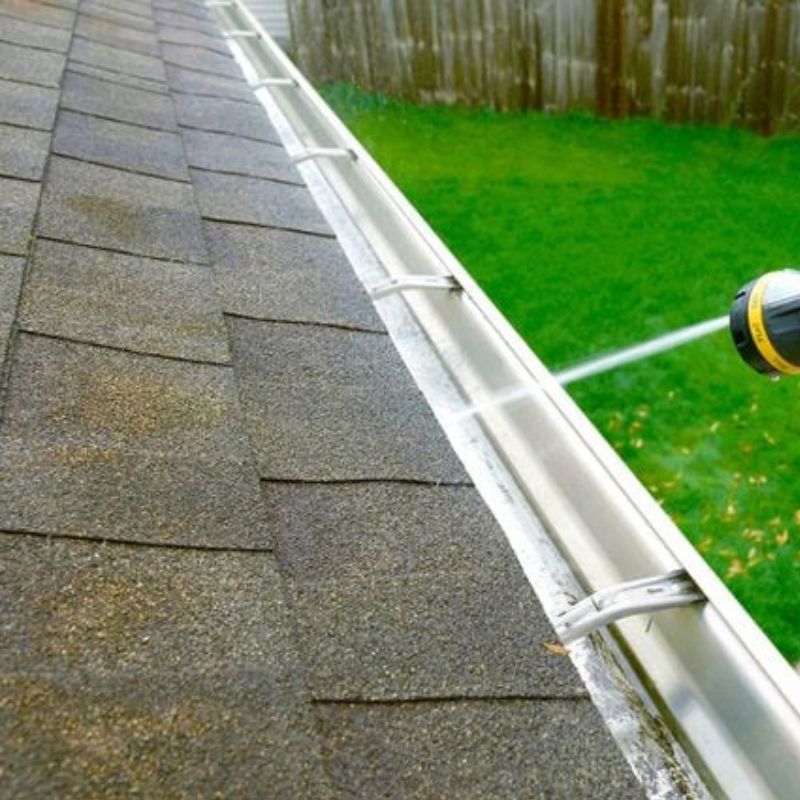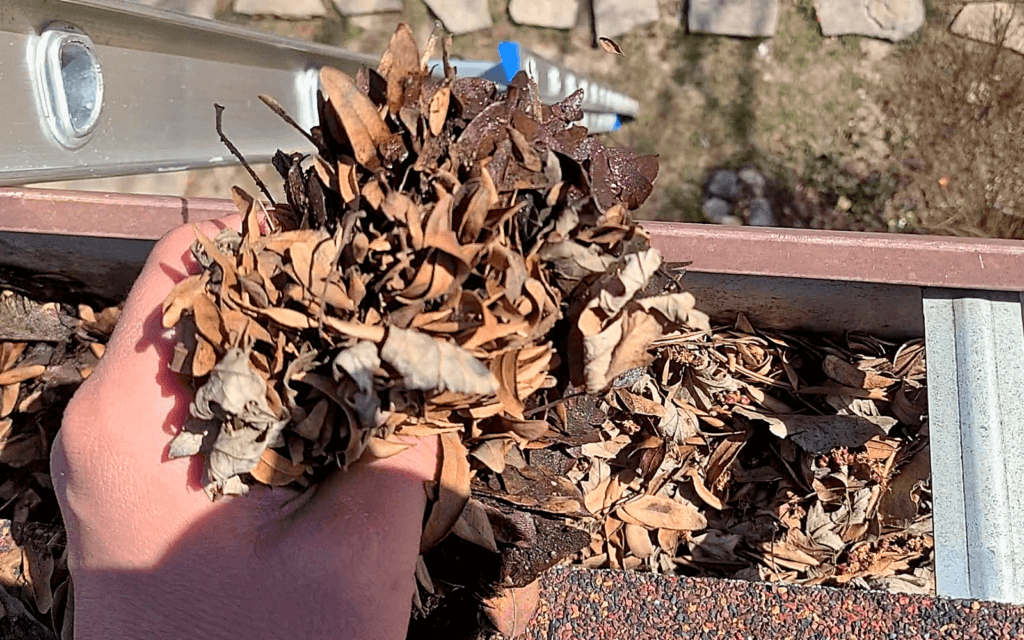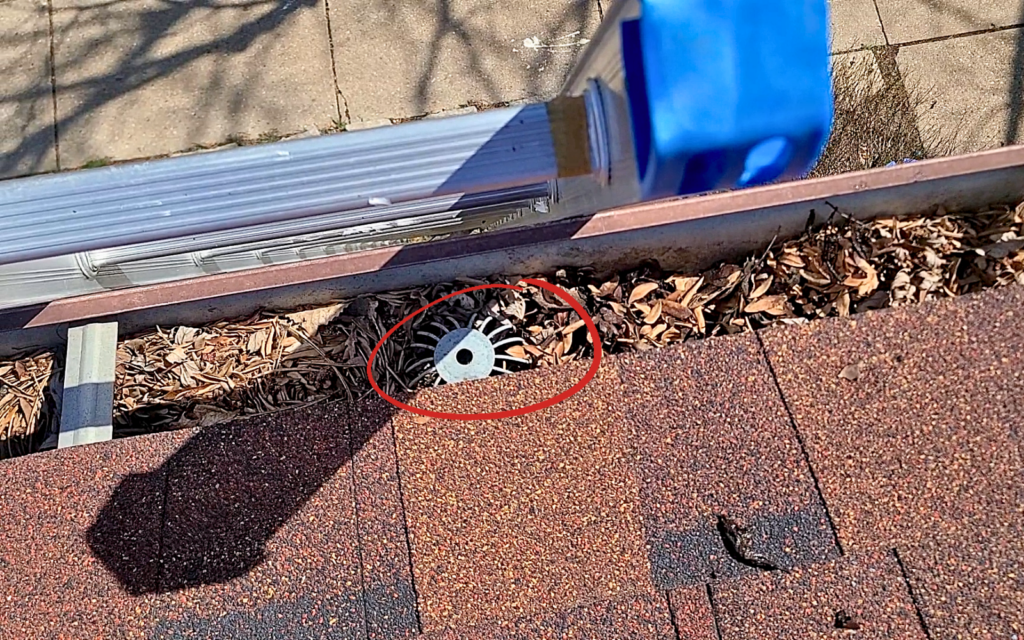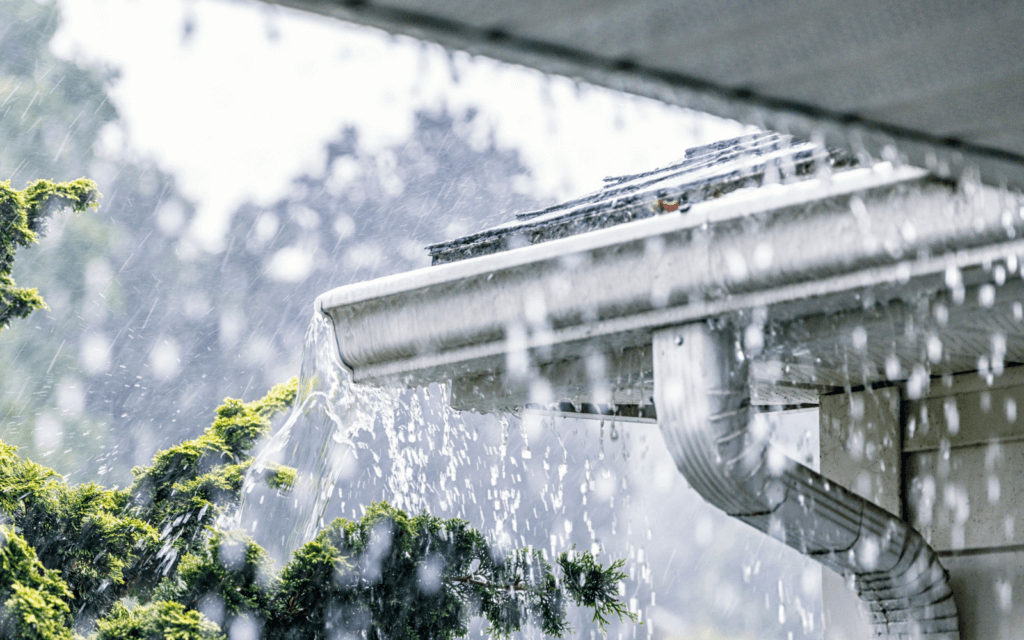
Imagine waking up to the sound of rain outside. But instead of enjoying the cozy atmosphere, you spot water overflowing from your gutters, threatening to damage your home. As a homeowner, taking care of your gutters isn't just a chore—it's essential for protecting your property.
Join us as we inform you on how to clean gutters, explain the importance of gutter cleaning, and provide essential maintenance tips to keep your gutters flowing smoothly year-round.

Here is how you can clean your gutters and make sure that they remain in top condition throughout the year.
Hand removal of debris from gutters is a fundamental step in gutter cleaning. It allows for the thorough removal of leaves, twigs, and other accumulated debris. By physically grabbing the debris, you can ensure that the gutter is completely cleared, preventing blockages that could lead to water overflow and potential damage to your home.
Benefits of cleaning gutters by hand:

Importance: Utilizing a Leaf Blower offers an efficient and time-saving method for removing light to moderate debris from gutters, especially in larger or hard-to-reach areas. It's particularly beneficial for homeowners who prefer a quicker and less labor-intensive approach.
Benefits of using a leaf blower:
Clearing the downspout outlets is crucial for maintaining proper water drainage and preventing water buildup in your gutters. Clogged downspouts can lead to water overflow, which can cause structural damage to your home's foundation, siding, and landscaping.
Benefits of cleaning the downspout outlets:

Here are some of the benefits homeowners get by cleaning their gutters:
1. Preventing Water Overflow:
Gutters are designed to collect rainwater and direct it away from your home's foundation. However, when gutters become clogged with leaves, twigs, and other debris, water can overflow, pooling near the foundation and potentially causing water damage. Regular gutter cleaning ensures that water can flow freely through the gutters, preventing overflow and protecting your home from moisture-related issues.
2. Preserving Soil and Landscape:
Erosion occurs when water runoff carries away soil particles, leading to soil loss and landscape degradation. Clogged gutters and improperly functioning downspouts contribute to erosion by directing water toward vulnerable areas of your property. By maintaining clean gutters and clear downspouts, you can control water flow and prevent erosion, preserving the integrity of your landscape.
3. Protecting Foundation and Basement:
Excess water near the foundation can seep into the soil, leading to foundation cracks, basement leaks, and structural damage over time. Proper gutter cleaning and downspout maintenance help channel water away from the foundation, reducing the risk of water infiltration and preserving the stability of your home.
4. Preventing Mold and Mildew Growth:
Moisture accumulation resulting from clogged gutters and inadequate drainage can create an ideal environment for mold and mildew growth. These fungal growths not only compromise indoor air quality but also pose health risks to occupants. By maintaining clean gutters and proper downspout drainage, you can reduce moisture buildup and mitigate the risk of mold and mildew infestation.
Here are some of the helpful tips to maintain the integrity of your gutter system:
1. Schedule gutter cleaning at least twice a year, ideally in spring and fall, to remove debris and prevent clogs. Consider more frequent cleanings if you have overhanging trees or experience heavy rainfall in your area.
2. Install gutter guards or screens to minimize the accumulation of debris in your gutters and reduce the frequency of cleanings. Choose gutter guards that are compatible with your gutter system and effective at blocking debris while allowing water to flow through.
3. Inspect your downspouts regularly to ensure they are securely attached to the gutters and extend at least 3-4 feet away from the foundation. Consider installing downspout extensions or splash blocks to redirect water runoff away from vulnerable areas and prevent foundation damage.
4. Inspect your gutters and downspouts after heavy rainfall to ensure they are effectively channeling water away from your home. Look for signs of water damage or moisture intrusion, such as damp spots on walls or ceilings, and address any issues promptly to prevent mold growth.

Knowing how to clean gutters is not just a chore—it's a crucial aspect of homeownership that directly impacts the integrity and longevity of your property. By understanding the significance of maintaining clean gutters, you're not only safeguarding against potential water damage, erosion, and foundation issues but also preserving the aesthetic appeal of your home and landscape.
However, for optimal gutter maintenance and peace of mind, it's often beneficial to seek professional assistance. Professional gutter maintenance services offer expertise, specialized equipment, and thorough inspections that go beyond DIY efforts. Their knowledge and experience can identify potential issues early on, ensuring your gutter system functions optimally, and your property remains well-protected.